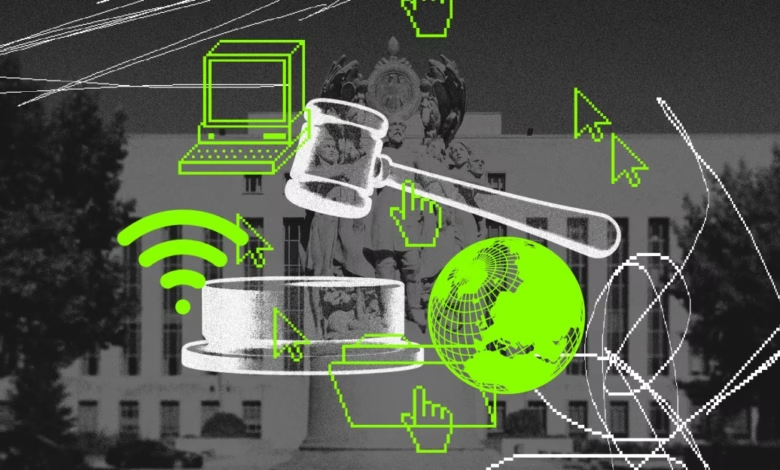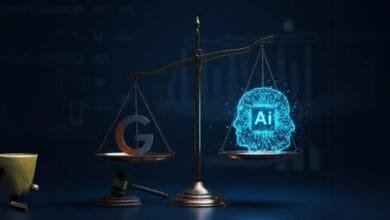Inside the Court Case That Could Change the Internet Forever

▼ Summary
– The E. Barrett Prettyman Courthouse in Washington, DC, hosted major tech antitrust cases (FTC v. Meta and US v. Google) alongside high-profile lawsuits against the Trump administration in spring 2024.
– Reporters faced logistical challenges covering overlapping cases, including security lines, limited media rooms, and unexpected courtroom interruptions like criminal hearings.
– Judge James Boasberg managed a heavy docket, balancing the Meta trial with Trump-related cases while facing public criticism from the former president.
– The courthouse has historical significance in tech antitrust, having hosted the landmark Microsoft case in 1998, with current cases reflecting renewed regulatory scrutiny of Silicon Valley.
– The outcomes of the Google and Meta trials could reshape the tech industry, potentially opening opportunities for competitors like Yahoo or OpenAI, though concerns remain about future monopolies.
The fate of the internet hangs in the balance inside a Washington courthouse, where landmark antitrust cases could reshape digital landscapes for decades to come.
This spring, the E. Barrett Prettyman Courthouse became the epicenter of legal battles that pit tech giants against regulators, with courtroom drama unfolding alongside high-stakes political clashes. Inside its dimly lit halls, judges juggled antitrust lawsuits against Meta and Google while simultaneously handling explosive cases tied to former President Trump’s administration. The courthouse, known for hosting government-related disputes, transformed into a revolving door of lawyers, journalists, and curious spectators, all vying for a front-row seat to history.
For weeks, reporters scrambled between courtrooms, dodging security lines that spilled into the adjacent park. The chaotic scene included moments of confusion, like when journalists expecting a Google witness instead saw a defendant in an orange jumpsuit step into the stand. Meanwhile, judges like James Boasberg balanced marathon hearings on Meta’s alleged monopolistic practices with rulings on Trump-era controversies, including mass deportations and encrypted messaging scandals. Boasberg, often the target of presidential fury, remained composed even as his docket overflowed.
The parallels to past tech battles were impossible to ignore. In 1998, Microsoft fought for survival in these same courtrooms, setting precedents that shaped antitrust enforcement. Now, decades later, regulators are taking aim at Google’s search dominance and Meta’s social media empire, arguing their unchecked power stifles competition. The rise of TikTok and AI has only intensified scrutiny, with bipartisan support growing for stricter oversight.
Yet the outcomes remain uncertain. Should judges rule against these tech titans, the ripple effects could take years to materialize. Witnesses in the Google trial hinted at a reshaped industry, with companies like Yahoo and OpenAI eager to acquire assets like Chrome if forced divestitures occur. But history suggests a cyclical pattern, today’s disruptors could become tomorrow’s monopolies, landing back in court before long.
Beyond antitrust, the courthouse buzzed with cases tied to Trump’s turbulent administration, from immigration crackdowns to agency purges. One afternoon, as Meta’s trial wrapped, reporters sprinted to cover a ruling against Google in a separate DOJ lawsuit, proof that legal earthquakes rarely strike alone.
The weeks of testimony peeled back layers of corporate strategy, revealing how tech giants cemented their dominance. Internal Facebook discussions from the early 2010s, for instance, showed executives fearing Google’s potential control over mobile messaging, a concern that now seems prophetic given Android’s preinstalled search engine deals.
As rulings loom, one thing is clear: the decisions made here won’t just alter Silicon Valley’s power structure, they’ll redefine how the internet itself functions. Whether this marks a new era of competition or just another chapter in an endless cycle remains to be seen. But for now, all eyes stay fixed on a courthouse where the digital future is being rewritten, one landmark case at a time.
(Source: The Verge)


